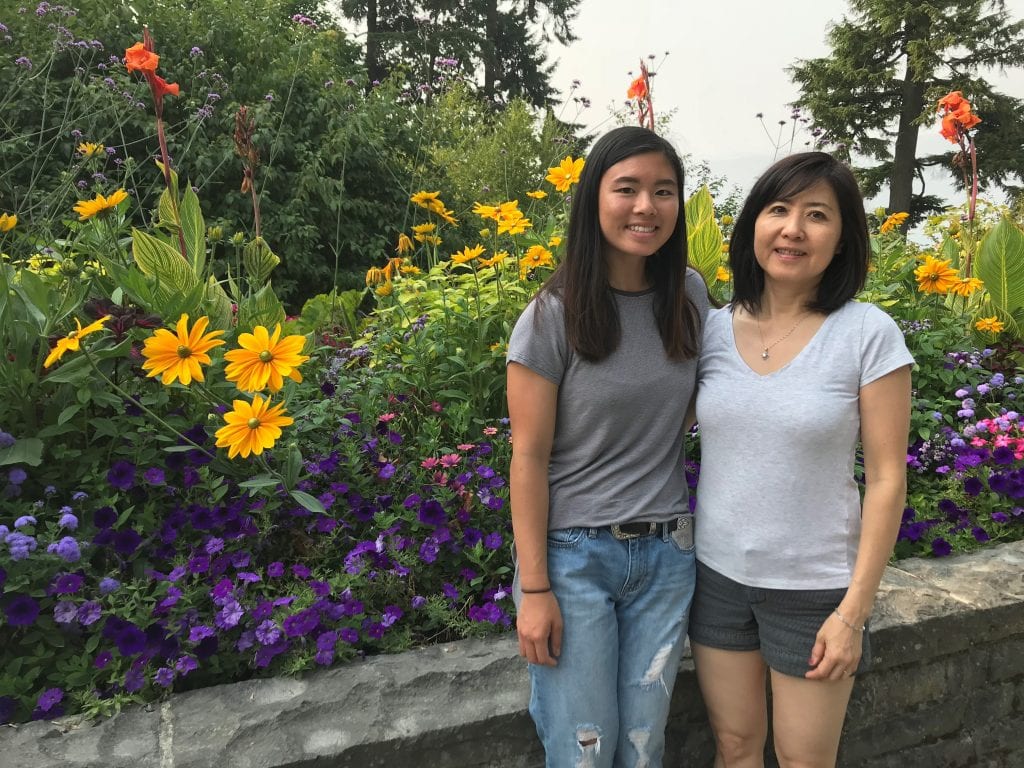I believe above all else, communicators are storytellers—whether that’s developing strategic, data-driven, insights and sound crisis counseling, or new creative ideas designed to push boundaries and products to market. And as individual practitioners, I also believe that our personal backgrounds are one of the most important elements that influence the way we tell stories. What do we identify as? What experiences and people shape our worldview, and how can we bring those unique elements to our work?
With APAHM (Asian Pacific American Heritage Month) in full swing and Mother’s Day barely in the rear-view mirror, I decided to connect with, and share with you, the point of view of someone who has shaped my POV as a storyteller more than anyone else… my mom, Laura Bạch Cúc Tran. So, in celebration of APAHM, we recently sat down to talk about her own story, and how her experience as an Asian American shaped her life and purview – and mine, too.
Here’s our chat…

Kelly: Thanks for hopping on FaceTime with me mom. Just so you know, I am interviewing you for a spotlight on Asian Pacific American Heritage Month! Can you tell me a little bit about your background?
Mom: My name is Laura Bạch Cúc Tran. My dad is Chinese, and my mom is Vietnamese. I was born in Long Thành, Vietnam – a small town in southern Vietnam, where I was the ninth child out of twelve. I’ve been in the US since 1979, so 40 years this year! My family and I first lived in Chicago when we came to the States, and I’ve been living in San José for the past 30 years.
Kelly: What was life in Vietnam like? Any favorite childhood memories you can recall?
Mom: To be honest, it was tough. Your grandpa didn’t let us go outside much because of the war, and we were often living in fear. From the age of seven, I attended a Chinese boarding school in Vietnam; however, I was only there with one of my sisters (everyone else was helping out with the family shop back at home). It was lonely at times because we weren’t able to go back home every weekend. I still loved school and learning Chinese, and I still keep in touch with many of the friends I had made there. Your grandma had passed away when I was ten, so my older sisters had to step up and help take care of the family along with my dad.
When I was fourteen, our family left Vietnam for better opportunities in America. We left on a small boat and landed in Indonesia after nine days at sea. We were taken in by a refugee camp and stayed for half a year. After that, we left for the US after being given the opportunity to be sponsored.
One of my favorite memories was going to my grandma’s house to make banh tet (steamed sticky rice) for Lunar New Year. We’ve kept up that tradition today, as you know.
Kelly: What was your first impression of the US? How did that fit in with your expectations of America?
Mom: My first impression of the US was that it’s very big! My concept of “big” was totally changed. People were tall. There were billboards! And food portions were big.
Also, people were kind and nice. We were refugees, so we were sponsored. We were accepted into the care of a Catholic church where we lived with nuns for a few months. They would often buy us food and provided us with clothes.
I started high school a few months after arriving in the US. It was exciting because everything was a new learning experience. I LOVED learning new things. Back when I was young, I aspired to be a teacher when I grew up. If I were to redo my career, I would have followed through with becoming a teacher. Most of my part-time jobs back then involved tutoring. It was rewarding to see a person’s reaction after they understand a concept.
As for my expectations, I anticipated not being scared anymore, and expected no more wars. I also expected freedom of speech, and more potential to excel. America was the “land of dreams.” In Vietnam, you may not have been able to do what you wanted to do in life because of the family status you were born into. In the US, the opportunities are limitless. I still believe that, and am grateful to be living here.
Kelly: What was the hardest part of adjusting to the US?
Mom: Learning English – everything was in English so it was hard to do homework. History especially was hard. There was a lot of cross referencing with the dictionary, but overall I loved learning. It was challenging, but fun.
Kelly: What did you and your siblings do in your free time?
Mom: We watched a lot of TV – my favorite shows were Tom and Jerry and The Munsters. We were fans of The Cubs and The Bears. We also often walked around the city and Lake Michigan. Movies were very new to me when coming to the US. We only had black and white TVs back in Vietnam, and cinema was a much bigger deal in the US.
Kelly: You weren’t given the name “Laura” by your parents – why and how did you choose your English name?
Mom: Well my name “Bạch Cúc” was hard to pronounce for most people I met in the US, so I decided to take an American name. Also, I really wanted to feel like I was a part of American culture so changing my name was a way to fit in. I was watching Little House on the Prairie and I aspired to be like Laura Ingalls Wilder – that’s where I got the name.
Kelly: What’s your favorite American dish?
Mom: Definitely pepperoni pizza. It is spicy and when you bake the pizza, the aroma is so good. It’s also nice because you can share it with others; I love eating family-style food since it gives you the opportunity to bond with others.
Kelly: How about your favorite Vietnamese dish?
Mom: My favorite Vietnamese dish is eggrolls; just because they’re a fun crunchy finger food to eat. I also love the variety of meats and vegetables used in the filling.
Kelly: Thanks so much for letting me interview you! Any final thoughts regarding APAHM?
Mom: Of course! When I think about APAHM, I feel proud that many of us started with nothing and that we worked hard as immigrants to get to where we are today. Your grandpa and my older sisters worked hard to support the family when the rest of us were growing up.


